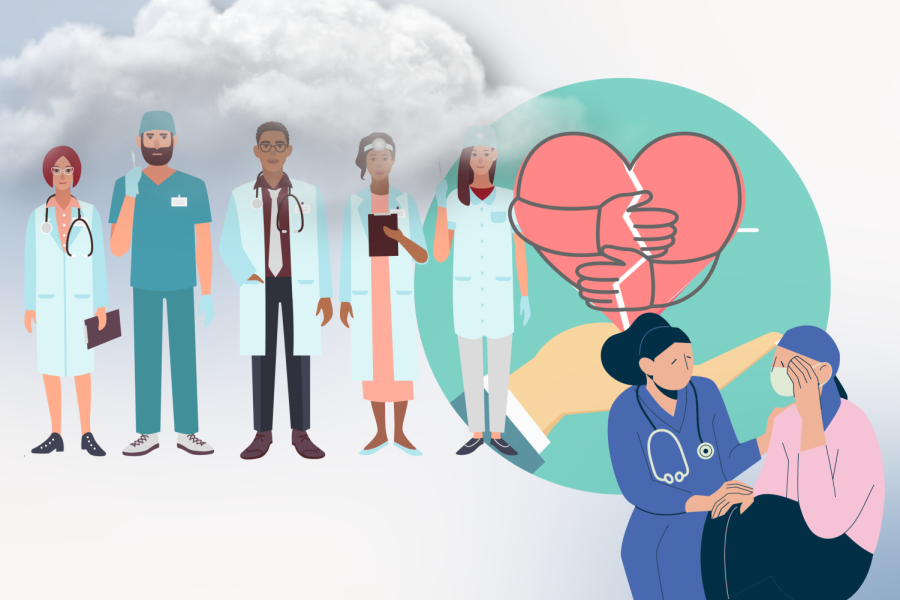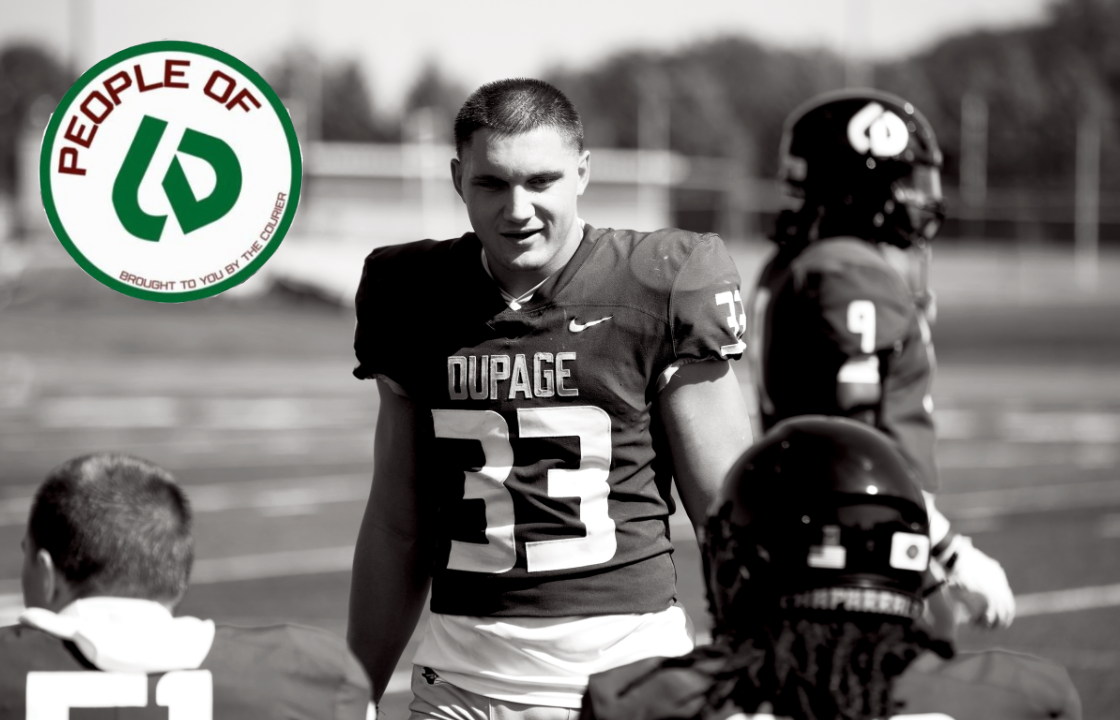Why We Should Care Less
A COD student weighs in on compassion fatigue, a condition resulting from caring too much about others and neglecting self care as a result.
October 17, 2022
A nurse staggers through the double doors of the hospital he works at. He glances at the clock– 7:04 a.m. 4 minutes late already, yet he couldn’t have arrived any earlier. He has been up until after 3 a.m. worrying about the twelve patients he had taken care of for the past five days. Now it is Saturday, and he’s supposed to be off, but he’s covering for a friend. Although he can hardly keep his eyes open, he will never say it, not even after the twenty-four-hour shift he pulled earlier in the week. He is accustomed to the exhaustion. Besides, to him, his patients’ health is far more important than his own.
At some time or another, many workers in the caregiving professions suffer from compassion fatigue. Compassion Fatigue Awareness Project is an organization that aims to increase general knowledge of compassion fatigue and soften its negative impact on caregivers.
“Compassion fatigue is a broadly defined concept that can include emotional, physical, and spiritual distress in those providing care to another,” the Compassion Fatigue Awareness Project’s website explains. “It is associated with caregiving where people or animals are experiencing significant emotional or physical pain and suffering.”
Mental Health America is the leading nonprofit in the U.S. with the mission to advocate for mental illness as a vital part of one’s overall health. Their website expands a bit more upon Compassion Fatigue Awareness Project’s definition of compassion fatigue.
“Compassion fatigue is a normal result of chronic stress resulting from caregiving for people we feel compassion for,” Mental Health America says.
Like with every medical condition, symptoms differ from person to person. However, some symptoms of compassion fatigue that are recurring across several sources include lack of self-care, mental and/or physical exhaustion, trouble sleeping, sadness, anxiety, headaches, unhealthy coping skills, irritability, and intrusive thoughts.

Students at COD going into caregiving professions are going to need to cope with the constant stress of potential compassion fatigue as they go on with their careers after graduation. One of those students is Nicolette Demos, a COD student studying psychology and social work. Demos, who aspires to become a high school psychologist, has overcome a lot to get where she is today.
“I was having trouble going to school and…staying in school because of anxiety and depression,” Demos says. “At one point, I was put into an alternative school, a therapeutic day school they called it, and honestly, it just made everything so much worse.”
Although interacting with people who had issues similar to or vastly different from hers was intriguing, the school did not help her. One of the most frustrating parts for her was the rule regarding timeouts; the moment Demos spoke out of turn, regardless of the reason, she would immediately be put in a timeout. Three timeouts in a day would earn her an in-school suspension. For Demos, the prospect of being put in a timeout at 16 or 17 years old was absolutely insane and only caused her more anxiety.
“I think that I would have just been able to get here a lot sooner to where I’m at in life, just being able to be healed and, you know, actually working on the problems that I have rather than…just what’s at the surface,” Demos says.
However, Demos is determined to channel her experience into positivity as she pursues her dream to be a high school psychologist.
“I feel like I could have been more successful in life at an earlier age if I had the right direction,” Demos explains. “And I want to be able to help other people with that.”
Demos expresses that she wishes to see more personalized and attentive care in the mental health field like she has seen in other caregiving professions.
“We had a speaker come in from the [Youth Women’s Christian Association], and they have rape crisis counselors,” says Demos. “That place specifically has a system in place to make sure everybody that works there is well taken care of, and after every client they see, there’s a checklist to go over to make sure they’re practicing self care.”
Demos hopes to see something similar implemented in the mental health field in the foreseeable future.
Although compassion fatigue happens often among caregivers, it can worsen in severity if sufferers do not recognize, acknowledge, or treat it promptly enough.
“Too many people try to stuff their own feelings away and try to keep working in a ‘business as usual’ approach,” Mental Health America reveals. “This reaction can easily lead to crisis.”
Demos confirms this, remarking that she couldn’t think of anyone who she’d interacted with who suffered from compassion fatigue as far as she could see. She felt a lot of people would mask their symptoms.
“I feel like that is probably because you don’t want to [show weakness] because you’re the one that’s supposed to be helping,” Demos says. “You don’t want to show that you are vulnerable also, even though we all are.”
Luckily, given that compassion fatigue is commonplace among the caregiving professions, there are many options available to help treat it before it becomes too worrisome. The Compassion Fatigue Awareness Project points out that the first step is being aware of the issue at hand. Once the person has realized and accepted the need for help, self-care is vital in the treatment of compassion fatigue.
Trying to avoid compassion fatigue entirely is the simplest solution. Although Demos has never personally observed anyone showing noticeable signs of compassion fatigue, according to her, classes at COD have taught her strategies to avoid compassion fatigue.
“Don’t take on anybody’s problems too personally because they are not yours,” Demos advises. “There’s a fine line [between] trying to help somebody and then overdoing it and putting yourself in that exhausting situation or working with somebody to the detriment of your own self.”
The Substance Abuse and Mental Health Services Administration (SAMHSA), part of the U.S. Department of Health and Human Services and an agency that aims to improve the behavioral and mental health of Americans, recommends that healthcare professionals suffering from compassion fatigue should make sure that they are taking time to practice self care; they recommend the basics such as eating well, sleeping well and drinking enough water. However, other aspects of self care are important, such as being physically active, taking part in activities they enjoy and various stress-relieving tactics. It also helps to stay in touch with friends and family and continue to interact with coworkers, even if only briefly.
If you or someone you know is suffering from compassion fatigue, make sure to take this advice seriously and remember that taking care of yourself is an essential component of caring for others.




















